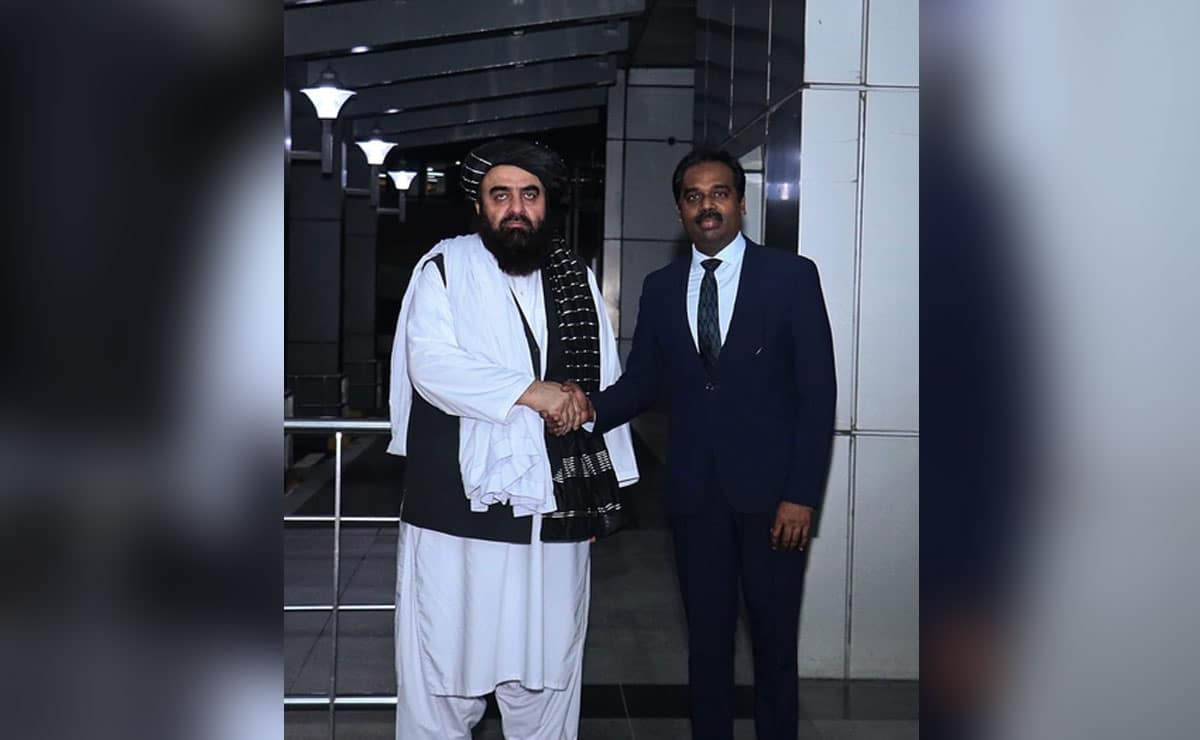On-ground realities, regional security imperatives in engaging with Kabul
Afghanistan’s Foreign Minister Amir Khan Muttaqi has been busy urging the global community to support the beleaguered nation since assuming office in August 2021.

New Delhi: Afghanistan’s Foreign Minister Amir Khan Muttaqi has been busy urging the global community to support the beleaguered nation since assuming office in August 2021. He has visited several countries in this effort, with the requisite exemption from the United Nations that imposes a travel ban on Afghan officials. He intended to visit India at least once earlier, but had to postpone as he could not obtain UN approval last month.
Historically, New Delhi has largely shared strong ties with successive governments in Kabul. But in the case of the Taliban, a regime erected on sheer force, with records of repression against women and children, India needs a cautious approach. While calling for an inclusive government in Kabul, India can also not totally ignore the regime, given Afghanistan’s geopolitical importance. On-ground realities and regional security imperatives are nudging New Delhi toward pragmatic engagement.
Also Read: Siddaramaiah to host dinner for Congress MLAs, may drop 15 ministers in cabinet reshuffle
While Russia remains the only nation to have granted recognition to the Taliban regime, China has recognised Kabul’s diplomatic emissary in Beijing and has its own embassy in Afghanistan. For Kabul, New Delhi is an important ally, given its role in providing immediate assistance in calamities like the Covid pandemic earlier, and the recent chain of earthquakes. India has been involved in several building and infrastructure developments with earlier regimes, which the Taliban seek for New Delhi to resume.
Also, India has no expansionist ideas and is not an unreliable ally like Pakistan, which tends to waver at every opportunity. Islamabad recently bombed the Afghan territories and is currently engaged in armed skirmishes at the border. To top it, thousands of Pashtuns are being forced back into Afghanistan, despite an uncertain future there. Thus, Muttaqi had India visit planned earlier, but was waiting for the opportune moment, and of course, requisite UN approval.
In May, he spoke with India’s External Affairs Minister S. Jaishankar during India’s operation Sindoor, following the Pahalgam terror attack by Pakistan-trained terrorists. Just before his New Delhi trip, he visited Russia to attend the Moscow Format Dialogue on October 7, where India, along with China and the host, joined the Taliban’s opposition to US President Donald Trump’s intended plan for an American base at Bagram, near Kabul.
Muttaqi and other Taliban officials have frequently traveled to Doha, Qatar, where the Taliban has maintained a political office. Some of these trips, such as one in August this year by Deputy Prime Minister Abdul Salam Hanafi, were for medical treatment, which also required a UN waiver. Afghanistan’s Foreign Minister has also visited Pakistan for meetings with officials despite strained relations.
In his current visit, Muttaqi is expected to discuss bilateral cooperation, trade, humanitarian aid, and regional security with his Indian counterpart and others, leading to a call for formal recognition. New Delhi’s cautious engagement with the Taliban-led government in Afghanistan contrasts sharply with the more assertive and pragmatic approaches of Russia and China.
India prioritises humanitarian aid, regional stability, and counterterrorism, while Russia and China have deepened ties through diplomatic recognition, infrastructure investment, and security cooperation. This divergence reflects differing strategic priorities, threat perceptions, and geopolitical ambitions.
